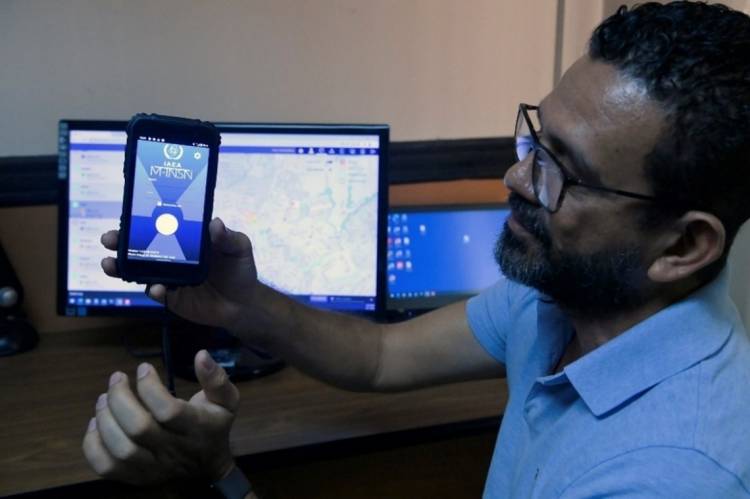Whether it is an international sporting event, a political summit, or a high-profile conference and exhibition, all major public events require an overall security plan that includes nuclear security measures. Since the Athens Olympic Games in 2004, the IAEA has provided support for 68 events in 43 countries to enhance their readiness to counteract potential nuclear security threats.
At an event taking place today alongside the IAEA’s annual General Conference, delegates came together to mark the success of the Agency’s Programme on Nuclear Security at Major Public Events over the past 18 years and to discuss ways in which the IAEA can continue enhancing its support to strengthen countries’ capabilities in nuclear security when hosting events that draw media attention and public interest.
“The impact of the programme implementation goes beyond the duration of a major public event,” said Elena Buglova, Director of the IAEA Division of Nuclear Security, at the event today. “We have seen many countries using this successful IAEA programme as the ‘starting point’ from which they can develop wider national nuclear security capabilities or enhance capabilities that already exist.”
During the event, participants learned about the IAEA’s support and assistance in this area, which includes equipment loans, training workshops, tabletop and field exercises, and technical visits by international experts. In the past six years, the IAEA has lent over 3500 items of radiation detection equipment to countries across the world as part of its major public events programme.
Highlighting the need for nuclear security considerations at major public events, Nigel Tottie, Head of the Institutional Response Infrastructure Unit of the IAEA's Division of Nuclear Security, said, “We advise host countries to consider the threats from nuclear and other radioactive material early on as part of their overall preparations and event security planning activities. The sooner they start planning their nuclear security measures, the better, as they will be able to make full use of the IAEA’s assistance programme in advance of the event.” Tottie moderated the event.
In a panel discussion featuring representatives from Costa Rica, Egypt and Qatar – countries that have made use of, or will be making use of, IAEA assistance for the implementation of nuclear security measures in major public events in 2022 – participants heard about their experiences and the benefits of IAEA assistance. Most recently, the IAEA supported Costa Rica in its nuclear security efforts for the Women’s U-20 Football World Cup in August 2022. IAEA support included four national workshops and one training activity in Vienna attended by around 90 people from 15 institutions.
“Costa Rica benefited greatly from the assistance given by the IAEA – this was the first time such a programme was implemented in the country,” said Ambassador Christian Guillermet-Fernández, Vice Minister for Multilateral Affairs, Ministry for Foreign Affairs and Worship of Costa Rica. “Capacity building opportunities were given to national authorities responsible for the implementation of the security measures and the operation of specialized equipment, as well as to first responders.”
Discussions and presentations during the event also highlighted the ways in which the IAEA continues enhancing its support to strengthen countries’ capabilities in this area. For example, the Agency’s support to Costa Rica included the first-ever deployment of its most advanced nuclear security protection software, the Mobile-Integrated Nuclear Security Network (M-INSN), to be used by front-line officers to quickly obtain and act on the radiation data they need to protect the public in case of an incident involving nuclear material. In addition to the M-INSN, the IAEA’s nuclear security field operations support includes the Tool for Radiation Alarm and Commodity Evaluation (TRACE) application, which is free for download and provides detailed information to help assess radiation instrument alarms caused by trucks and other cargo carrying vehicles.
“The M-INSN software supported radiation detection operations carried out by the Special Intervention Unit at stadiums, hotels, training facilities and other main venues,” said Ambassador Guillermet-Fernández. “It allowed them to have a secure communication and analysis of information between front-line officers and the command center.”
The IAEA plans to launch a Personnel Alarm Assessment Tool (PAAT) later this year, to help front-line officers’ work during alarm assessment.







